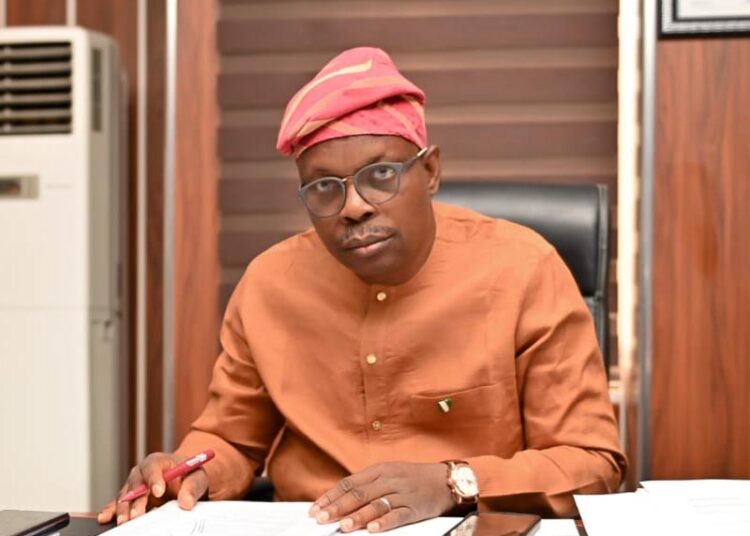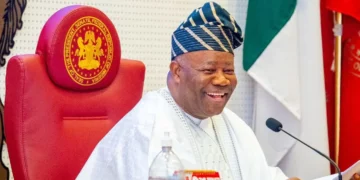Recently, the minister of state for Health and Social Welfare, Dr. Iziaq Adekunle Salako, stated that President Bola Tinubu was committed to eliminating medical tourism as reflected in an increased budgetary allocation for health this year.
He said the budgetary allocation will reduce the cost of controlled drugs and other medical consumables via issuing of waiver and a holistic change of mechanism in the recruitment process and addressing Japa syndrome.
We recognise that Nigeria is well known not as a tourist destination for public health care but serves as a vital source country to destination countries such as India, Turkey, South Africa, Saudi Arabia, United States of America, United Kingdom, France and Germany among others for procedures such as cardiology, oncology, orthopedic surgery and nephrology and even issues as mundane as child birth.
Every month, almost 5,000 people leave the country for various forms of treatment abroad when such treatment should have been procured in Nigeria.
Sadly, medical tourism is often perpetuated by those in government, politicians and the elite, an indication that recent investment in high-class private health facilities in Nigeria has not been able to remarkably reduce the cost of medical tourism in Nigeria.
A report from the Central Bank of Nigeria (CBN) on the amount spent on health-related and social services under the sectoral utilisation of foreign exchange, indicated that Nigerians spent about $3.07 million on foreign healthcare-related services from January to December 2024.
For us, the reported increase in medical tourism cost, as reported by the CBN, is an indication that so much money in hard currency was still being spent to seek medical care outside the country.
The indispensable impact of the US$3.07 million spent on outbound medical tourism is a huge loss to the local healthcare system. On the other hand, it’s big business for overseas medical facilities, some of which have dedicated international marketing and welcome units, including arranging transport and language services. Others work with medical tourism agencies to facilitate referrals.
The booming business also involves doctors or other agents who refer well-heeled clients to healthcare providers overseas for commission.
This perception is increased by the fact that government officials and politicians are sponsored abroad for medical treatment at the nation’s expense.
The Nigerian health sector maintains a multi-dimensional healthcare delivery system including private health care, public healthcare, non-governmental and faith-based organisations and traditional healthcare.
The onus of the provision of healthcare in the country lies majorly in the hands of the three tiers of government: the federal, state, and local government.
The primary healthcare system is operated by the 774 local government areas as well as private medical professionals while the secondary healthcare system is managed by state ministries of health.
The tertiary healthcare system is provided by teaching hospitals, specialist hospitals, and federal medical centres.
The secondary and tertiary levels also collaborate with voluntary, non-governmental organisations, faith-based organisations as well as private professionals in order to deliver medical care.
Unfortunately, the authorities continue to pay lip service to curbing the malaise instead of leading the battle upfront to tackling medical tourism.
We are embarrassed to think that Africa’s most populous nation with an estimated population of 200 million contends with a parlous healthcare system, even with poor health outcomes and life expectancy at 53.
According to the World Bank, Nigeria has a life expectancy of just 53, compared to 60 for Nigeria’s neigbours Cameroon and Benin.
The nation’s hospitals are mere consulting clinics with obsolete equipment and diagnostics tools that have rendered the practice of medicine more of a guess work.
In 2024, a Lancet report’s ranking of health systems performance, using healthcare access and quality as criteria, placed Nigeria at 142 out of 195 countries.
We are cognisant of the key factors affecting the aggregate Nigeria health care system development and responsible for Nigerians becoming medical tourists.
These include; inadequate health facilities and equipment, poor human resources management, lack of motivation and remuneration, corruption, poor health care financing, decreased expenditure on health by the government, and political instability.
Other factors are shortage of essential drugs and supplies, inadequate access to health care, absence of integrated system for disease response, prevention, surveillance and treatment; high user fees and inadequate healthcare providers, and lack of confidence in the nation’s health sector
Meanwhile, in our opinion, the money spent on medical tourism, if channelled to improving local health facilities, will help to reduce medical tourism in Nigeria.
Experts proffer that the government should continue to promote investment in quality healthcare services in Nigeria and also needs to do a lot more to reduce the brain drain challenge and provide an enabling environment for high-class quality healthcare to flourish in Nigeria.
As a newspaper, we suggest some remedies to the problem including: adequate funding of the system, improved healthcare facilities, better remuneration and motivation for health workers.
There’s no better time than now for the government’s intervention in the battle for supremacy among health workers, immediate ban of government-sponsored medical trips abroad, adequate training, enforcement of legal action against medical negligence, improved medical research and encouraging foreign investment





